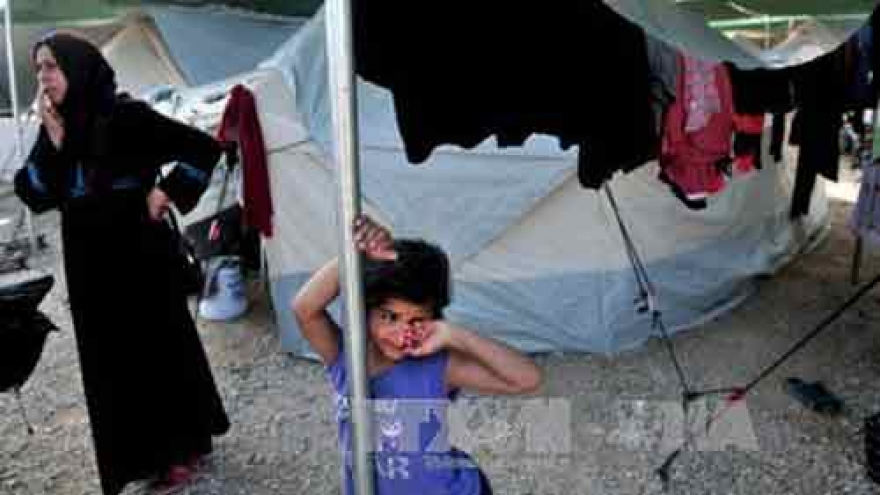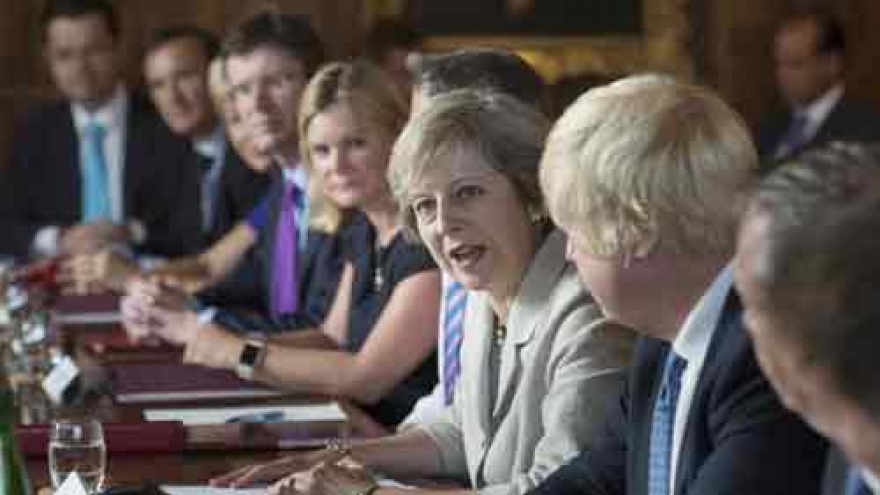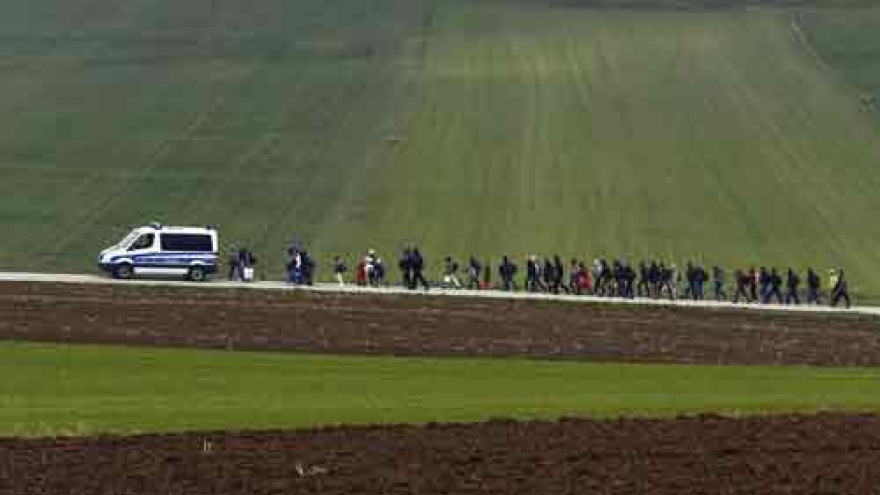EU sets new priorities for development
VOV.VN - The EU summit in Bratislava, Slovakia, on September 16 will be an opportunity for the bloc to show its internal unity and identify its new orientation after the UK’s departure.
 |
The EU summit in Bratislava, Slovakia, will try to deal with several issues including Britain’s exit (Brexit), the migration crisis, and international military and economic cooperation.
Key contents
The migrant crisis will top the summit’s agenda. Prior to the summit, European Council President Donald Tusk warned EU leaders that they cannot ignore the lessons of Brexit and must address concerns about migration when they meet in Bratislava this week if they want to see peace in Europe.
In a letter to the summit’s participants, Tusk said the EU has been too slow to deal with the migration crisis and there is not much time left. He said Bratislava must be a turning point in protecting the EU’s external borders. Tusk also said European citizens expect the EU to better protect their economic and social interests.
Besides looking for ways to resolve the migrant crisis, EU leaders will work to reach consensus on strengthening internal security against terrorism and reinforcing border security. Four days before the summit, Germany and France introduced a plan to build an EU military base and hold periodic meetings on defense and security policy.
President of the European Commission Jean-Claude Juncker said in his 2016 State of the Union address on September 14 that after 14 attacks in EU countries in the past year, the EU should approve anti-terrorism measures and build a headquarters for joint EU forces. He also proposed an EU defense fund.
Czech Prime Minister Bohuslav Sobotka said he will propose at the Bratislava summit three initiatives: measures to protect the EU’s external borders, combat terrorism, and create a joint European army; exploiting the benefits of a free market and free travel within the EU; and improving the role of the European Council.
Differences
Although the EU summit in Slovakia could have a major effect on the EU’s future development, there have been few optimistic predictions of the summit’s outcomes. Even EU officials hesitate to predict much beyond a show of unity and a determination to move forward.
Juncker’s State of the Union address acknowledged that cooperation among EU members has been disappointing. For example, Luxemburg’s Foreign Minister Jean Asselborn called for temporarily expelling Hungary from the EU for violating EU’s core values and discriminating against migrants. Differences have arisen in members’ views on globalization. Some countries want the EU to increase trade protectionism.
Others want to strengthen economic competitiveness. Outside observers say they expect no progress on pending trade issues such as the Trans Atlantic Partnership with the US or the Comprehensive Economic and Trade Agreement (CETA) with Canada.




